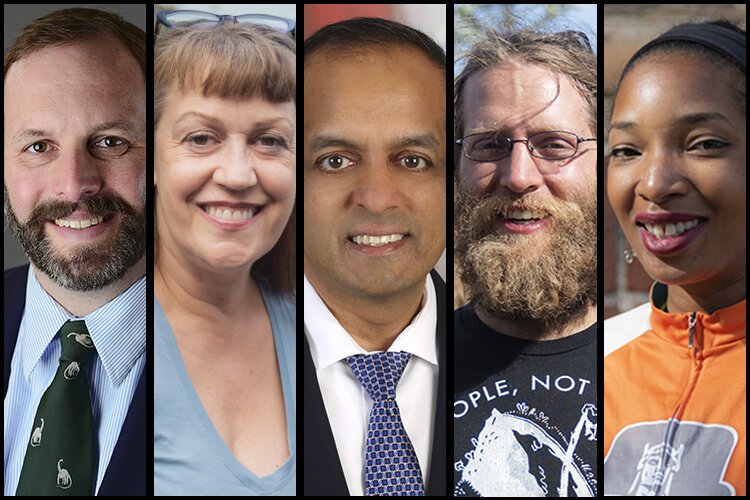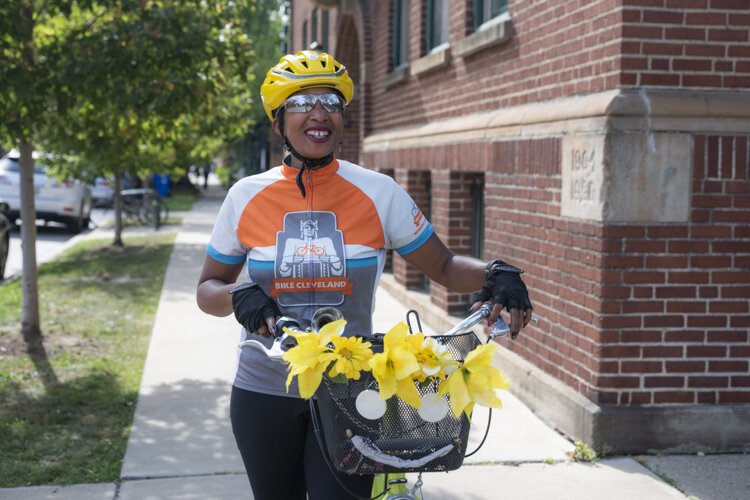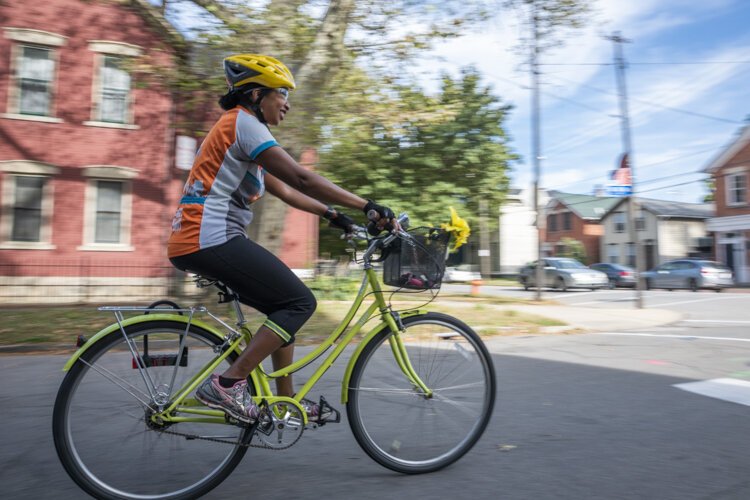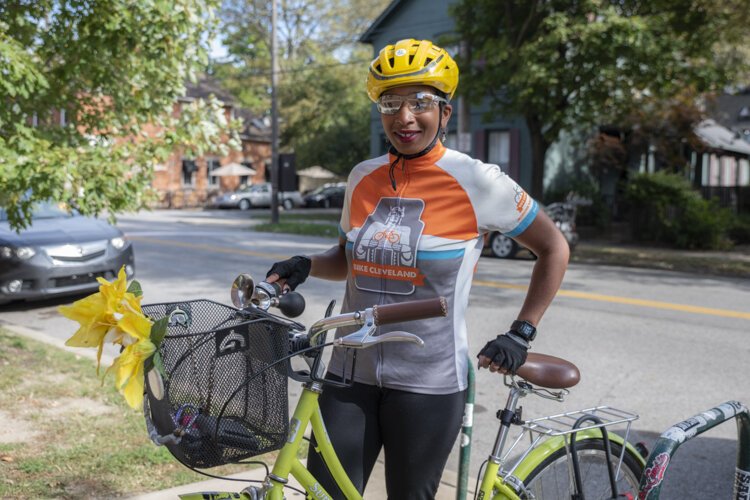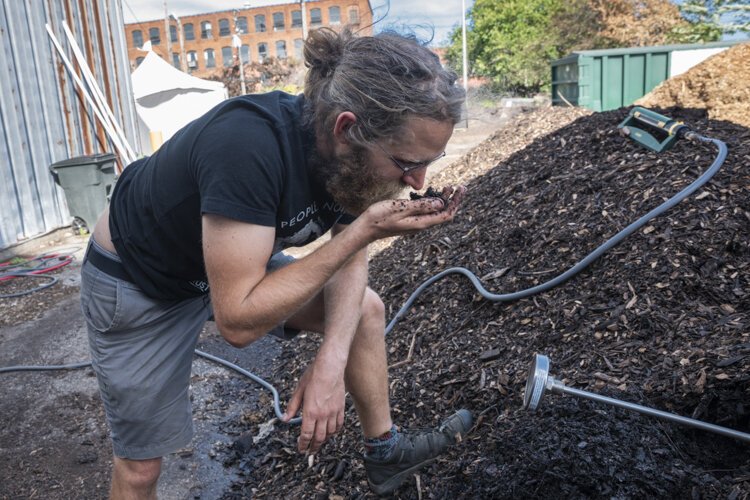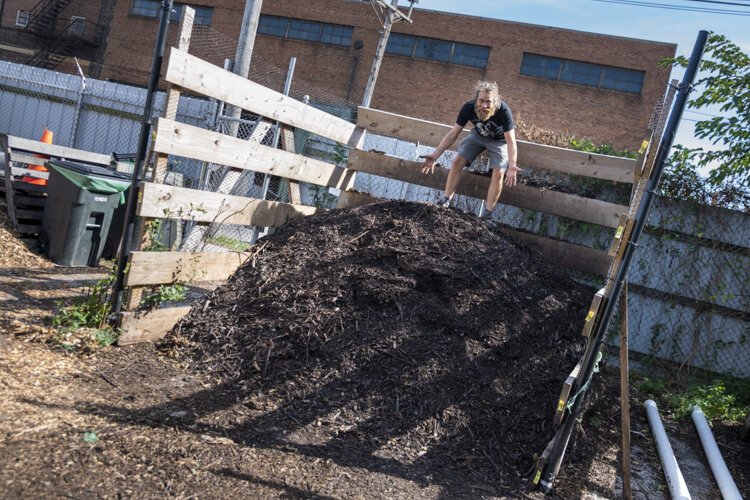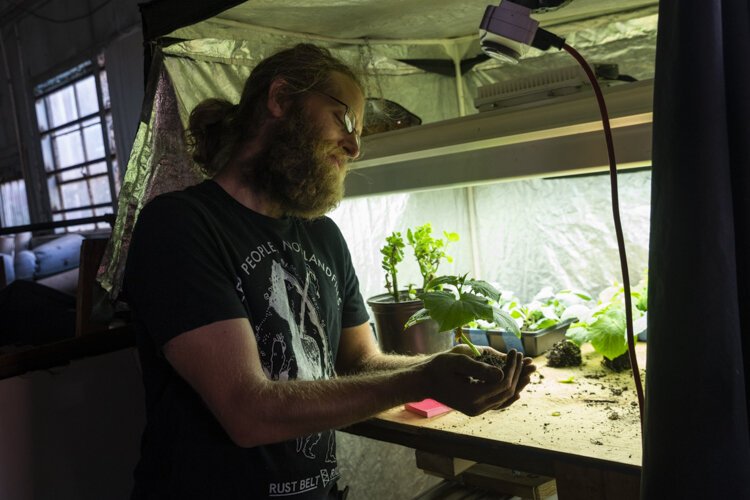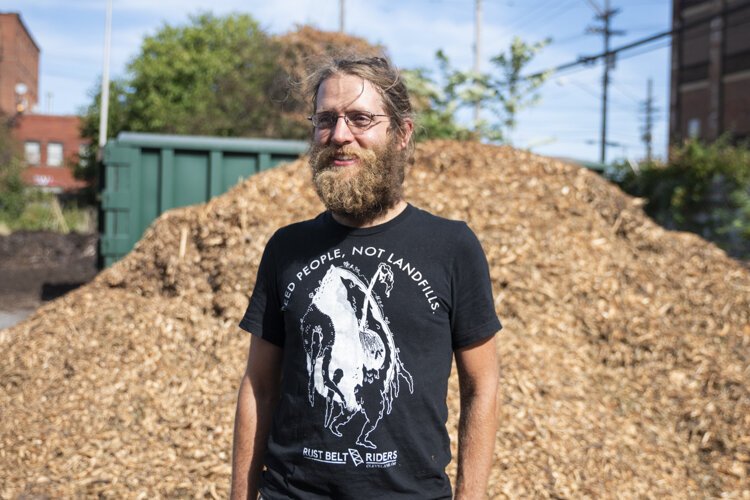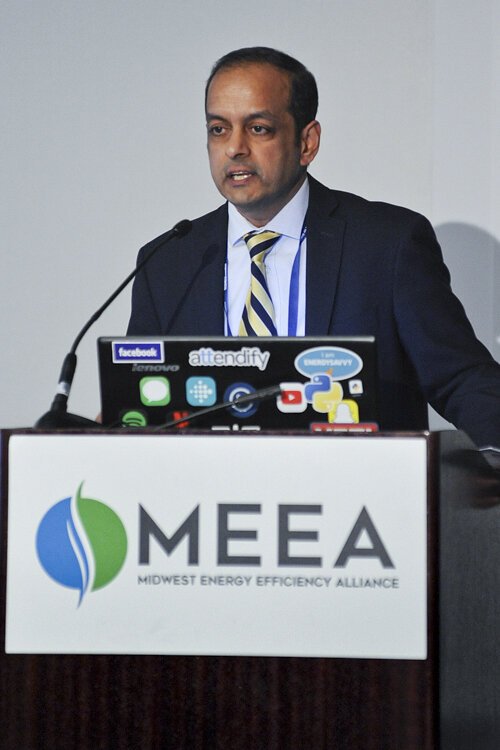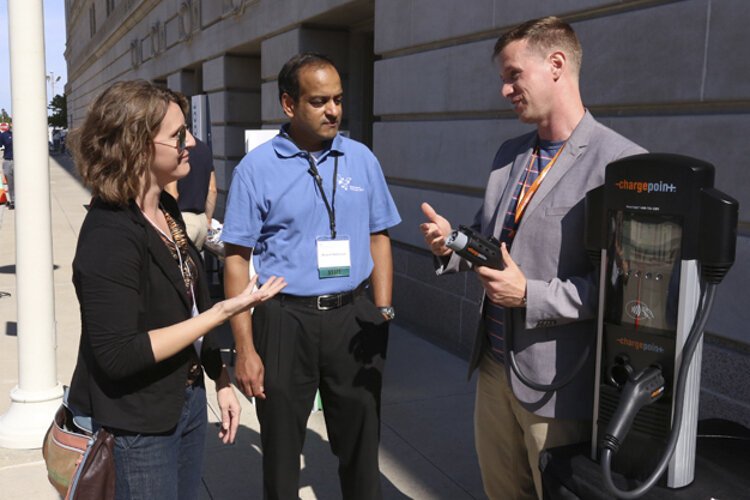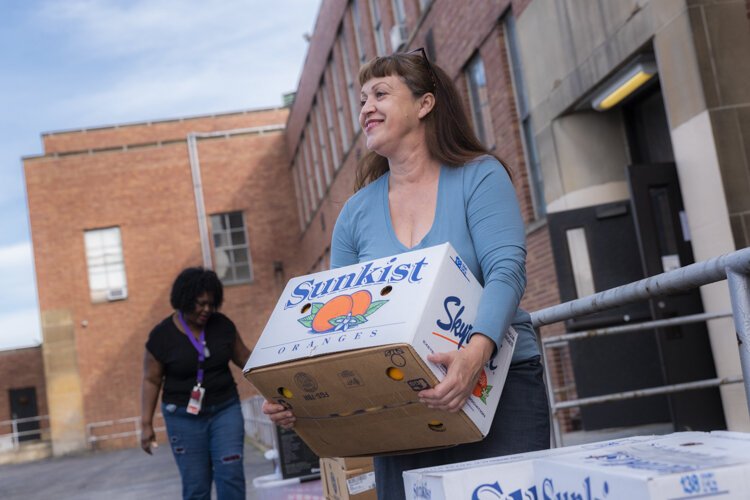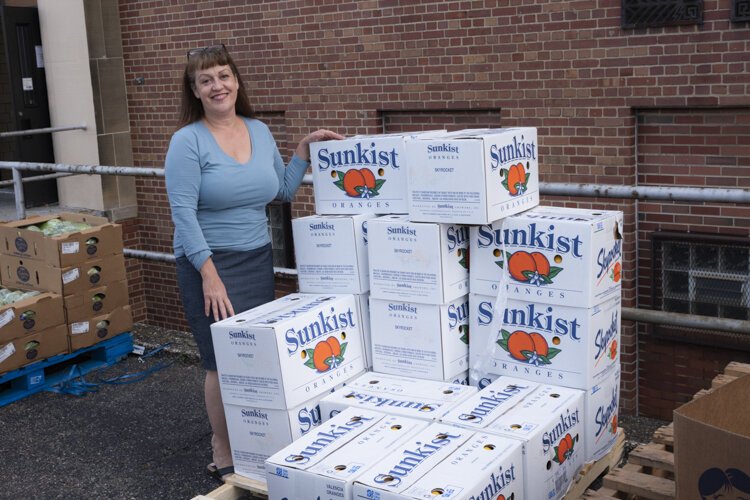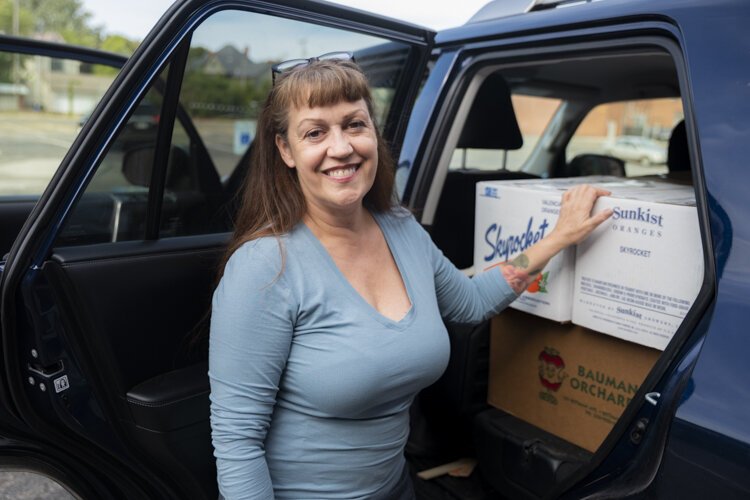5 green jobs that are making an impact in Cleveland
 Deltrece DanielsDeltrece Daniels, outreach coordinator at Bike Cleveland
Deltrece DanielsDeltrece Daniels, outreach coordinator at Bike Cleveland
As far as transportation goes, Europeans seem to have us car-heavy Americans beat. The climate stats can’t make us feel any less guilty: Every car-mile emits roughly one pound of CO2 emissions, according to the European Cyclists Federation.
The average bike ride? Next to zero.
This is the kind of PR that Deltrece Daniels, Bike Cleveland’s outreach coordinator since 2017, wants to get out. Besides converting newcomers on customized bike tours and advocating for a midway lane on Superior Avenue, Daniels’ most recent array of pro-bike tactics includes pushing the anti-car take on commuting to work. This means everything from taking the Towpath Trail to the recent Clean Water Fest, to joining the Ohio Department of Transportation’s new Walk.Bike.Ohio policy plan.
All of which, Daniels says, contains inherent motives to cut down on steep greenhouse gas emissions. She’s even in the works of devising a survey to gauge just how many Bike Cleveland members have forgone their vehicles for environmental reasons.
“We’d love to get people to reduce their carbon footprint,” Daniels says. “I think there’s a huge overlap with those environmental people and those who say, ‘Yeah, I just want to get on a bike today.’”
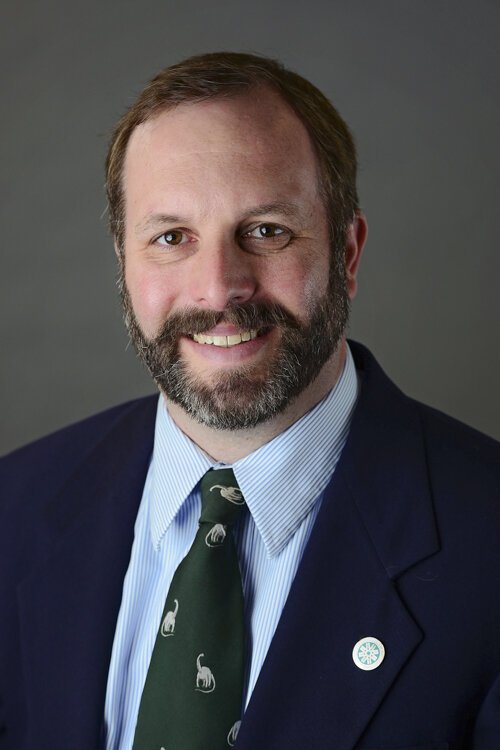 David November, director of sustainability at Cuyahoga Community College
David November, director of sustainability at Cuyahoga Community College
When Tri-C’s Metro campus came back online this spring, David November was rightfully excited. As the college’s sustainability coordinator, he knew the reopening could be accompanied by further green initiatives, namely beefing up back-kitchen composting and doing away with VOC-heavy paint.
“Essentially it means getting rid of that new building smell,” November says.
Although Tri-C raised tuition by roughly $10 per credit hour in 2018, it seems those added dollars are being put to good use. For one, the four current construction projects—from a flashy new STEM wing at its Parma campus, to an expansion at West Shore—are all LEED-certified structures November himself ensured were “healthy spaces” ripe with good air circulation and natural light. Such keenly planned efforts, November says, now save the college about $1 million in energy costs per year.
Other than collaborating closely with the Mayor’s Office of Sustainability or the Cleveland Water Department, November’s job itself demands a strict watchdog role in his immediate sphere. He’s nudged his coworkers to opt for iPad reading over paper use, and he made desk-side recycling bins all for the most part mandatory.
This, he jokes, should also make the bookkeeper happy.
“Oh, there’s that economic aspect of sustainability that we can’t forget,” he says. “Why should we be spending money in places we really don’t have to?”
 Nathan RutzNathan Rutz, director of soil at Rust Belt Riders
Nathan RutzNathan Rutz, director of soil at Rust Belt Riders
Nathan Rutz’s day peaks, he might say, at about 150 degrees.
That’s the temperature that wood chips and food scraps turn into compost, the life source of Rust Belt Riders, where Rutz acts as their soil commander-in-chief. Since 2014, when the Riders got their start hauling restaurant waste to community gardens by bike, the for-profit has been promoting an organic alternative to overcrowding landfills with lettuce and bananas, turning such scraps into natural soil (they sell branded as Tilth) Rutz likes to say is “a love letter to our future.”
After spending seven years in environment nonprofits, Rutz joined the seven-person Riders team in 2017, after self-educating on the work of microbiologist Elaine Ingham. Day to day, Rutz assumes a variety of roles other than soil specialist, from picking up food bins from around 12 clients, from Tri-C to Rising Star Coffee Roasters, to teaching philosophy-heavy compost courses.
As for this year, Rutz says the Riders are pumped to test out their beta version of home-based pickup in Shaker Heights and Lakewood. And they intend to expand their operation to from one acre to 10. Rutz sees it as their magnum opus in a way: to turn Greater Cleveland’s residents into true-to-heart composters.
“Landfills are just offensive to someone with a basic sense of ecology,” Rutz says. “I really think everybody will want to compost when they see that want could’ve been wasted is now turned into a valuable resource.”
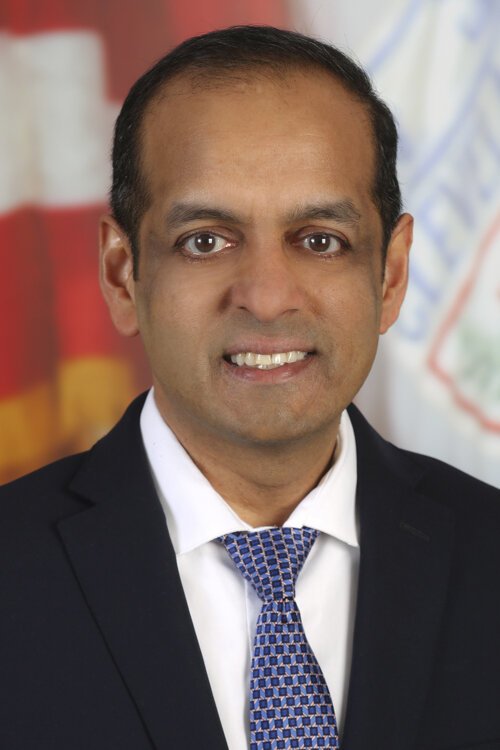 Anand NatarajanAnand Natarajan, energy manager of the Mayor’s Office of Sustainability of the city of Cleveland
Anand NatarajanAnand Natarajan, energy manager of the Mayor’s Office of Sustainability of the city of Cleveland
To everyone Anand Natarajan talks with, it’s a lofty goal often met with head shakes: Reduce Cleveland’s greenhouse gas emissions by 80 percent by 2050.
“We’re far away from getting there,” Natarajan laughs. “Right now we’re being optimistic, though.”
As one of Cleveland’s leaders in all things energy for the last nine years, Natarajan has maintained a network of energy organizations with the overarching aim of making the city a greener place. Although Cleveland has no official benchmarking mandates to meet energy efficiency, Natarajan combats this in a number of ways, including: ensuring new buildings (a dog kennel on the West Side, recently) go up with LEED standards; sending out Requests For Proposals for solar power overhauls; and collaborating with the Cleveland 2030 District, a nonprofit organization that helps “high performance” building districts achieve energy and greenhouse gas reduction targets.
Cleveland ranks 27th out of 75 large U.S. cities in saving energy in five key areas, according to a scorecard from the American Council for an Energy-Efficient Economy, he says.
Even though Cleveland only saw a 2% greenhouse gas emission reduction from 2010 to 2016, Natarajan hopes ongoing policy and infrastructure improvements—like Cleveland Public Power’s citywide streetlight LED overhaul—can ramp up the decline in CO2.
As long as he has a decent budget.
“I do understand the limitations,” Natarajan says. “Sometimes [green energy] isn’t a priority. I certainly would like to do more. It’s all about change management, and change management, well, is hard.”
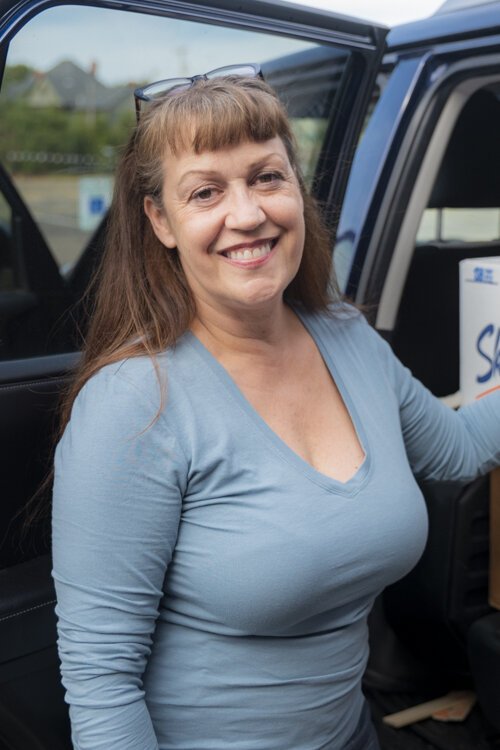 Giovanna MingroneGiovanna Mingrone, founder of Stone Soup Cleveland
Giovanna MingroneGiovanna Mingrone, founder of Stone Soup Cleveland
Nothing irks Giovanna Mingrone, a lifelong culinary whiz, more than a kitchen that wastes food. Well, at least one that doesn’t just toss it out.
That, she says, wouldn’t be a real deal cook.
“Well-trained chefs know that sustainability is part of the deal,” Mingrone says. “Why does food waste happen? Well, it’s easier to throw something out than to have staff in place to deal with it properly.”
This is where Stone Soup comes in. After relocating from San Francisco to Cleveland to start Battuto Ristorante in Little Italy, Mingrone grew fed up with the business and closed Battuto’s doors in 2007. In 2015, finished with rote kitchen practice, she began Stone Soup, initially in her Ohio City apartment and a year later in a building in Cleveland’s Clark-Fulton neighborhood. The grant-funded nonprofit delivers would-be waste to food pantries. By the end of 2018, Mingrone and a helping of volunteers had rescued more than 205,000 pounds of everything from bulk grains to shredded carrots and cut peppers. Some are leftovers from a major sports team (although Mingrone won’t say which one).
Though Mingrone reports growth at Stone Soup every year, she’s still bogged down by routine business management. For one, she juggles teaching culinary courses at Tri-C while doing most of the food pickup herself (she’s hoping to get a refrigerated van and hire a paid driver soon).
As for her lectures, Mingrone doesn’t shy away from lambasting the institutions that blindly ignore from proper food-waste management. Liability problems, she says, aren’t sufficient reasons for inaction.
“Isn’t sustainability a corporate issue when it comes down to it?” she says, in midst of delivering boxes of lettuce. “I mean, how can you tell your clients you’re 90% sustainable when you’re still throwing food out? To me, there’s no excuse.”
This feature story is part of a dedicated series titled "People, Planet, Progress: A Decade of Sustainable Cleveland" in partnership with Sustainable Cleveland.


